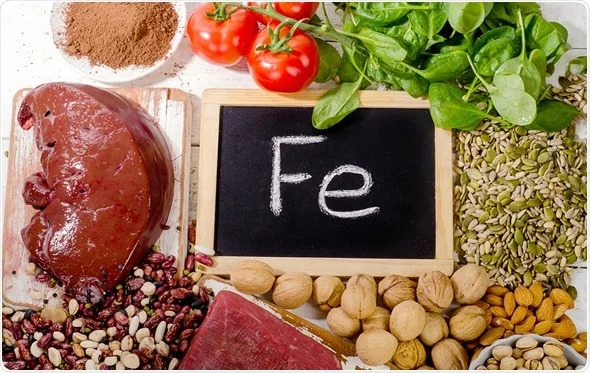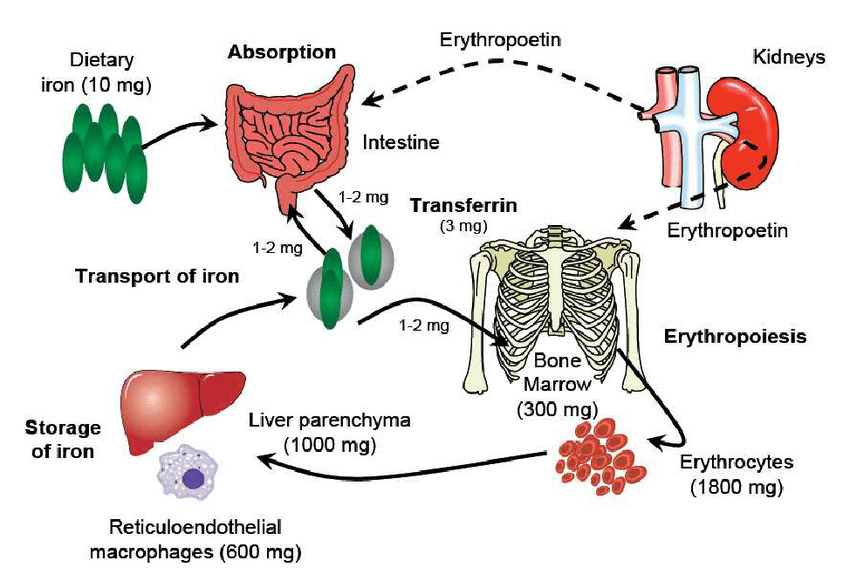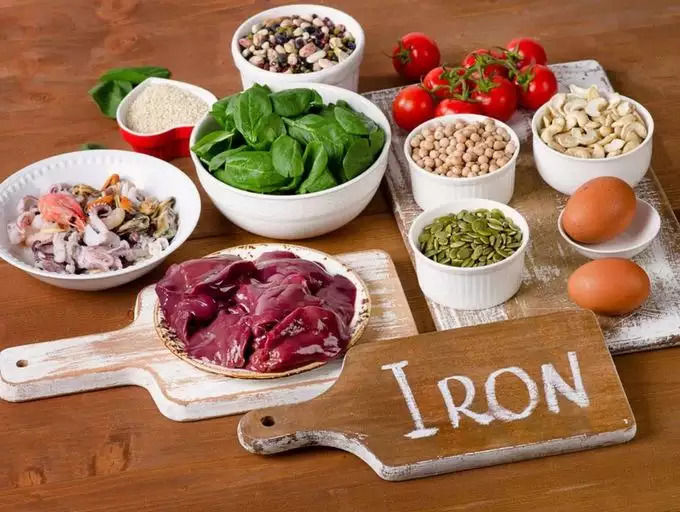Is Iron important for Metabolic activities in your body?
What is Iron?

Iron is an abundant and one of the most essential minerals that is necessary for almost all kinds of living beings and organisms. This mineral plays an important role in a wide variety of metabolic processes that includes electron transport, synthesis of Deoxyribonucleic Acid (DNA), formation of hemoglobin, oxygen transport throughout the body, and more.
This mineral is recycled in the body and then consumed. The chemically formed usable iron is delivered to several tissues by some specific transporter that captures release of iron in plasma. A human body uses iron to make a protein called Hemoglobin that carries oxygen from lungs to various parts of the body and also a protein called Myoglobin that carries oxygen to the muscles of the body. There are also several hormones that need iron for their production.
Benefits of Iron in your body
Iron is necessary for a number of functions, productions, development, and maintenance tasks in a human body. This mineral is needed to perform such function and provide several health benefits to a human body that includes:

- improves the immune system
- regulation of body temperature
- maintain gastrointestinal process
- maintain general energy
- reduces bruising and fatigue
- improves concentration and restore sleep
- improves concentration, muscle endurance and hemoglobin
- helps to treat anemia
Natural source of Iron
Iron is one of the most vital minerals that a human body cannot produce on its own. Our body needs to harness this mineral from the food we eat. It is important to consider foods that are rich in iron into your daily diet.

Such high iron source food products include Spinach, Legumes, Pumpkin seeds, turkey meat, soy-based food such as:
- Tofu,
- shellfish,
- liver and other organ meat,
- red meat,
- Quinoa grain,
- broccoli,
- Cashews,
- Baked potatoes,
- Whole-grain and enriched breads,
- lentils,
- cornmeal and syrup,
- watermelon,
- prune and its juice,
- dried peas and beans,
- wheat products,
- dried peaches and apricots, etc.
REFERENCEs:
- https://www.news-medical.net/health/Iron-Functions-in-the-Body.aspx
- https://www.researchgate.net/publication/261957307_Review_on_iron_and_its_importance_for_human_health
- https://www.healthline.com/nutrition/iron-deficiency-signs-symptoms#if-you-think-you-have-a-deficiency
- https://www.lybrate.com/topic/iron-benefits-sources-and-side-effects
- https://www.eufic.org/en/vitamins-and-minerals/article/iron-foods-functions-how-much-do-you-need-and-more
- https://www.ncbi.nlm.nih.gov/pmc/articles/PMC3999603/
For more details, kindly visit below: